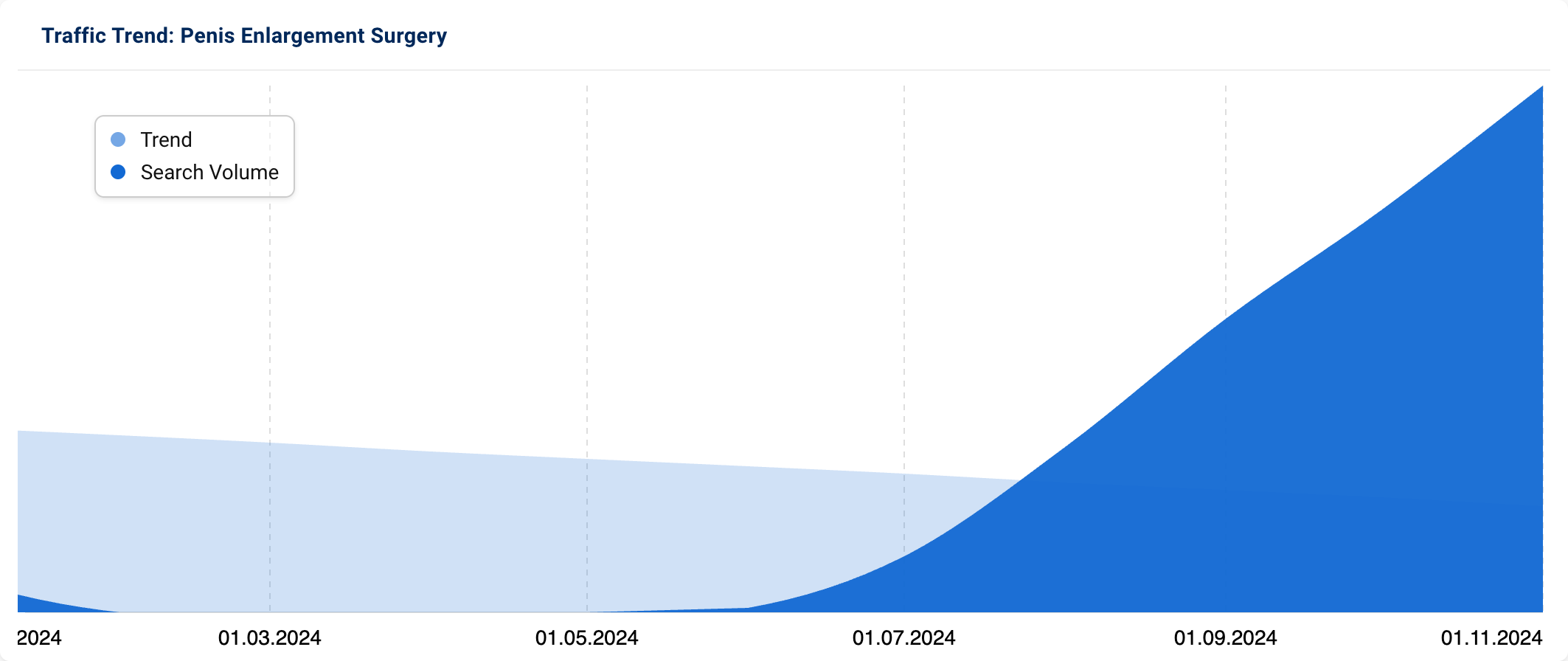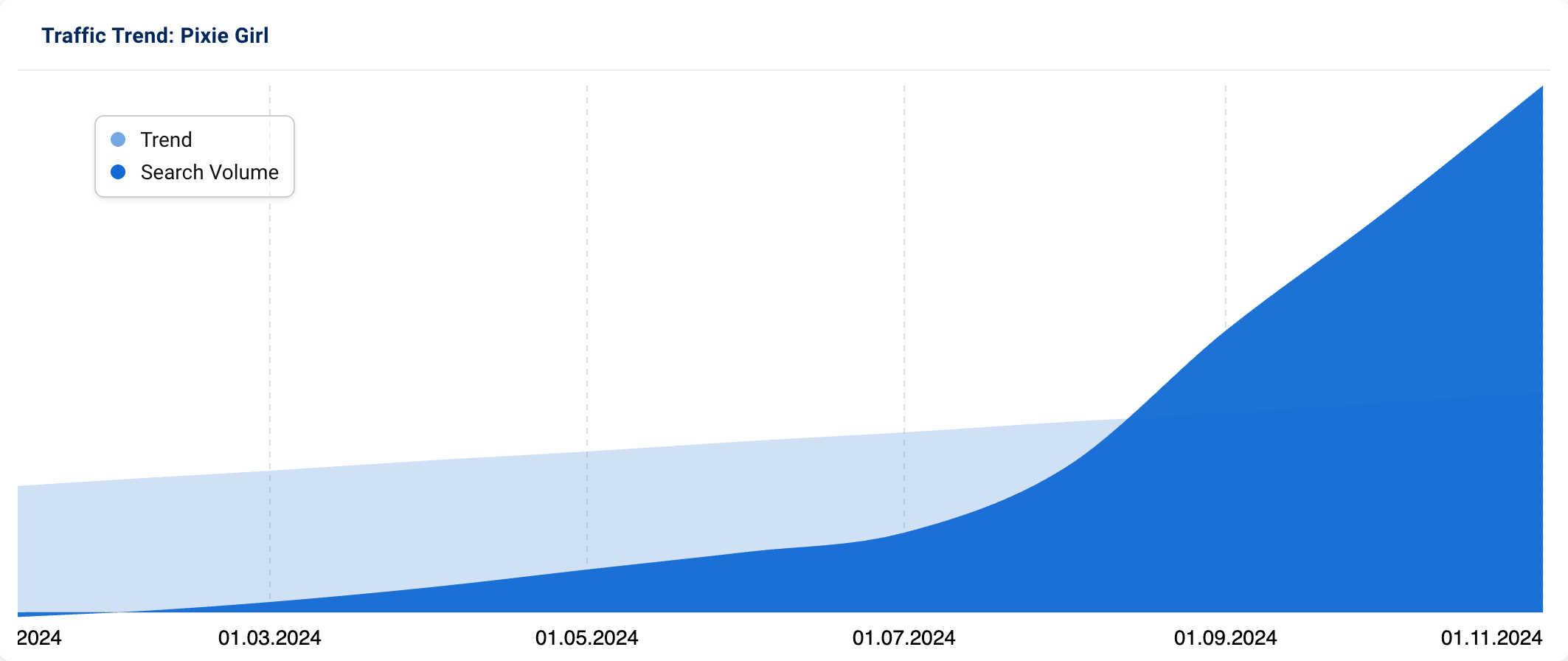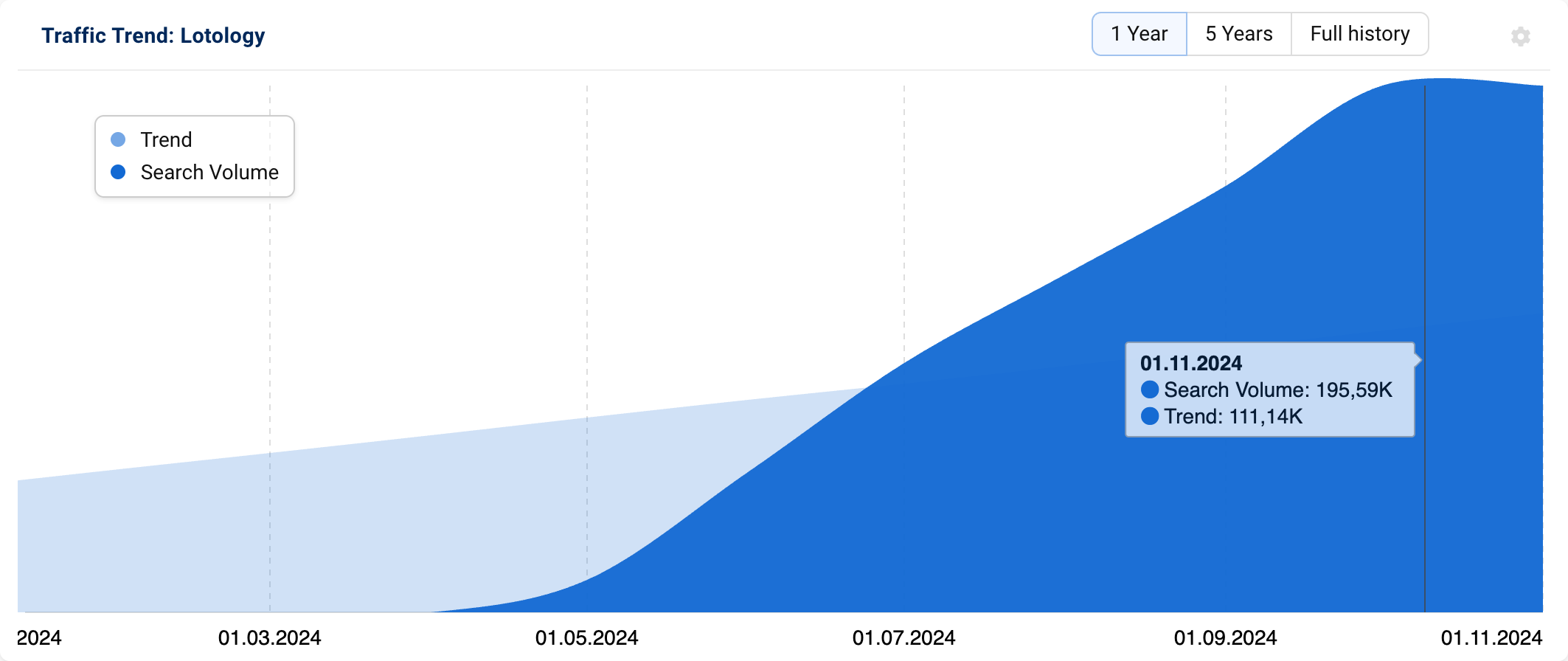In this month’s edition of TrendWatch we focus on Dubai Holiday’s, Stlflix, Pixie Girls and many more interesting trends. Join us in discovering these trends and their backgrounds.
Penis Enlargement Surgery

Turns out British gents have been rushing to “extend their influence”. Thanks to medical advances, getting an upgrade is safer than ever. New techniques like fat transfers mean less risk of things going pear-shaped. Penis fillers, designed to increase the organ’s girth, are also gaining in popularity – despite warnings over complications.
A significant portion of men (around 45%) report dissatisfaction with their penis size, which can lead to anxiety and low self-esteem. This psychological impact drives many to seek surgical solutions as a means of improving their confidence and sexual experiences.
Couple this with a new generation that doesn’t think discussing downstairs renovations is taboo. Just like women openly chat about cosmetic tweaks, men are now comfortable saying “I’d like a bit more to work with, please.”
Clinics offering these services have popped up everywhere, with many offering quick “lunchtime procedures”.
Better technology, more acceptance, and easier access mean this trend isn’t shrinking anytime soon. Just remember, gents – it’s not the size of the boat that matters, but whether you can stay afloat in choppy waters!
Source: London Andrology
Pixie Girl

The term “pixie girl” evolved from the “Manic Pixie Dream Girl” (MPDG) archetype, coined by film critic Nathan Rabin in 2007 after watching Kirsten Dunst’s performance in Elizabethtown. While both terms evoke whimsical, quirky characteristics, “pixie girl” lacks the MPDG’s defining trait: existing solely to catalyze male character development.
Recent films like Bottoms (2023) and Barbie (2023) have challenged this trope by presenting complex female protagonists who pursue their own narratives independent of male characters. These multifaceted portrayals represent a decisive shift from the MPDG’s traditional role as a male character’s inspiration.
This evolution in the pixie girl archetype reflects broader cultural shifts in gender representation. As audiences increasingly demand authentic female characters, creators are moving beyond simplistic stereotypes to develop more nuanced portrayals.
And while there will always be room for whimsy in storytelling, today’s characters remind us that women are the authors of their own adventures, not just supporting players in someone else’s tale.
Lotology

Lotology is the hobby of collecting lottery tickets, both winning and non-winning tickets. People who enjoy this hobby are called lotologists. They appreciate the tickets for various reasons like their artistic designs or the history behind them.
In the UK, this field is experiencing a particular momentum because of a few converging factors. The digital transformation of lottery participation has been crucial, with online platforms making games more accessible and attracting a younger, tech-savvy demographic who prefer digital engagement. Which ultimately means, less physical tickets being produced.
The National Lottery is also getting a new operator, Allwyn, which is generating additional interest in lotteries. They’ve announced plans for innovative game formats and enhanced marketing initiatives. The integration of lottery offerings with sports betting is now appealing to a wider audience where collecting of sports memorabilia is commonplace.
Each lottery ticket’s unique serial number adds an element of individual significance that appeals to collectors. The artistic and historical value of these items provides deeper layers of interest for enthusiasts. The combination of technological advancement, changing operator dynamics, and broader cultural shifts has positioned lotology in a unique space. It now stands as an emerging field where digital innovation, cultural preservation, and modern collecting practices intersect.
Or we can see it as digital innovation meets the ancient art of hoarding pieces of paper that didn’t make you rich the first time around.